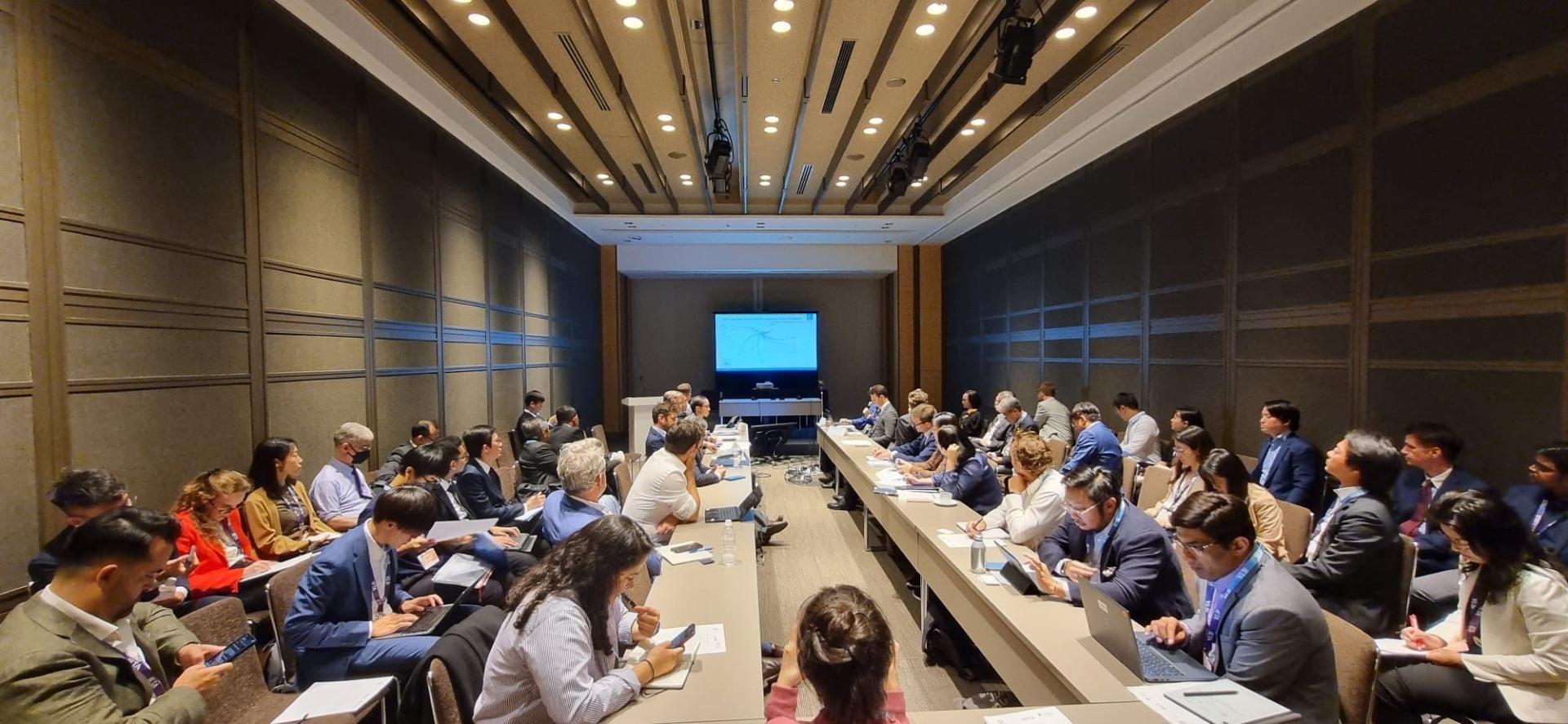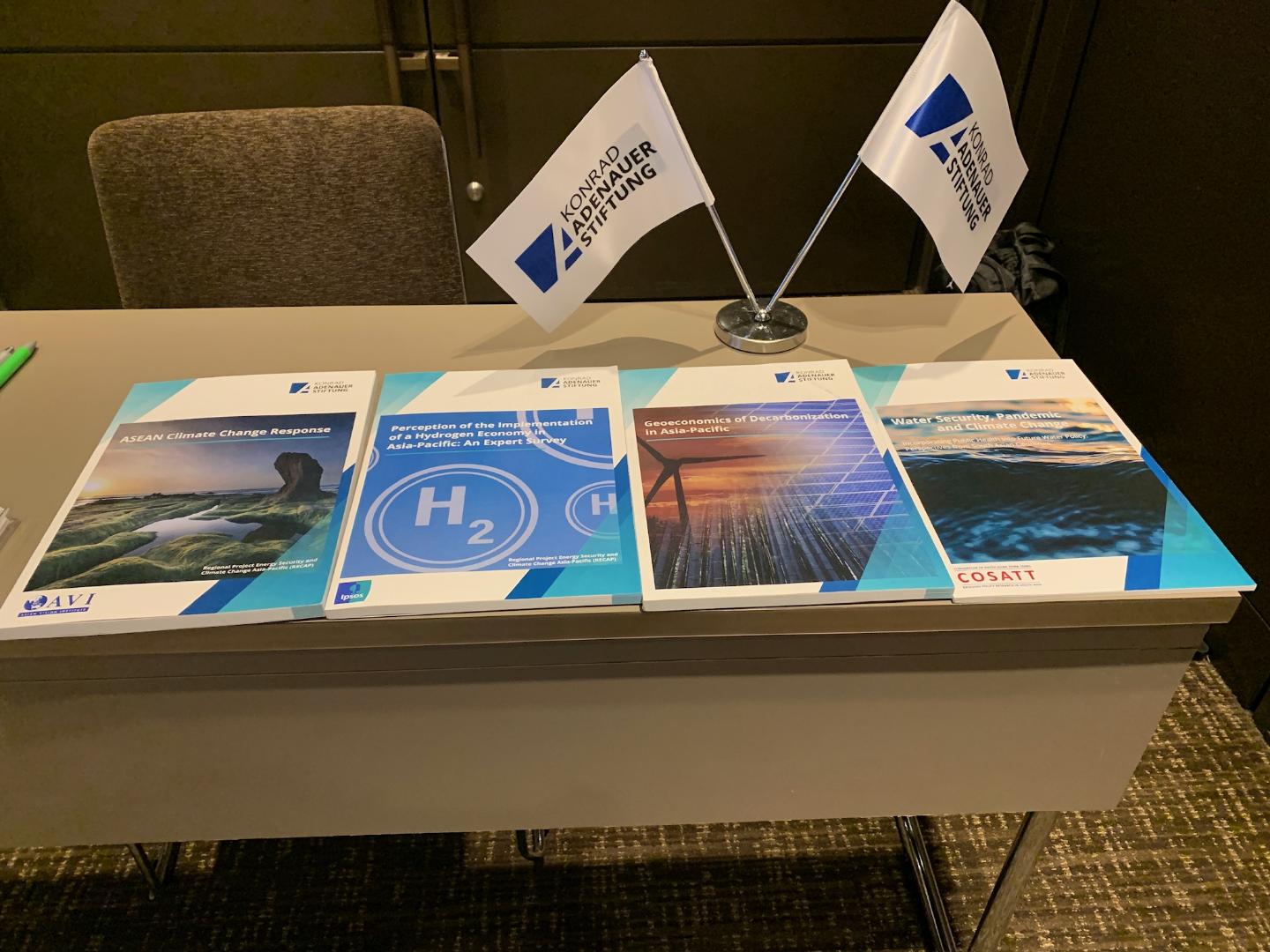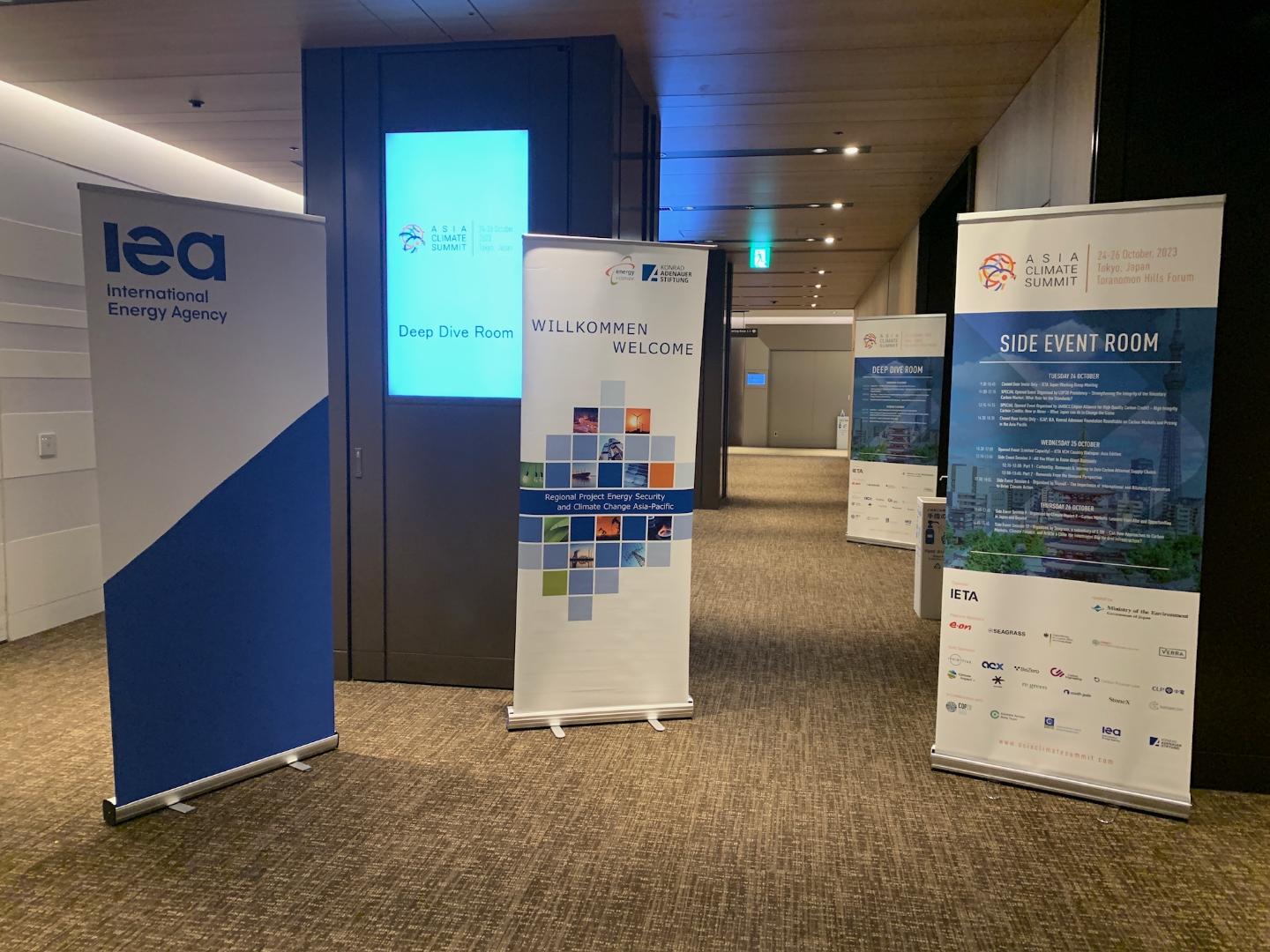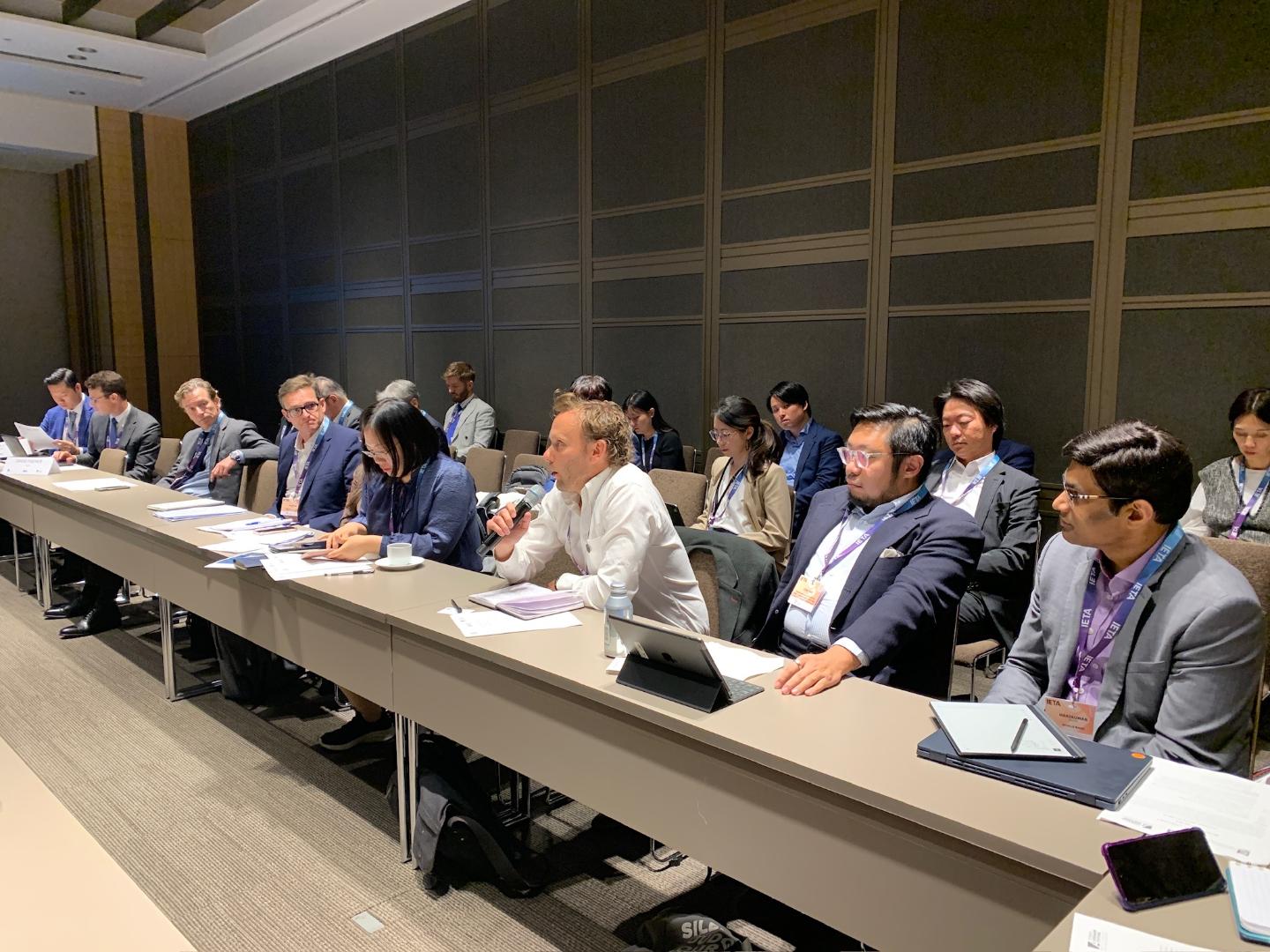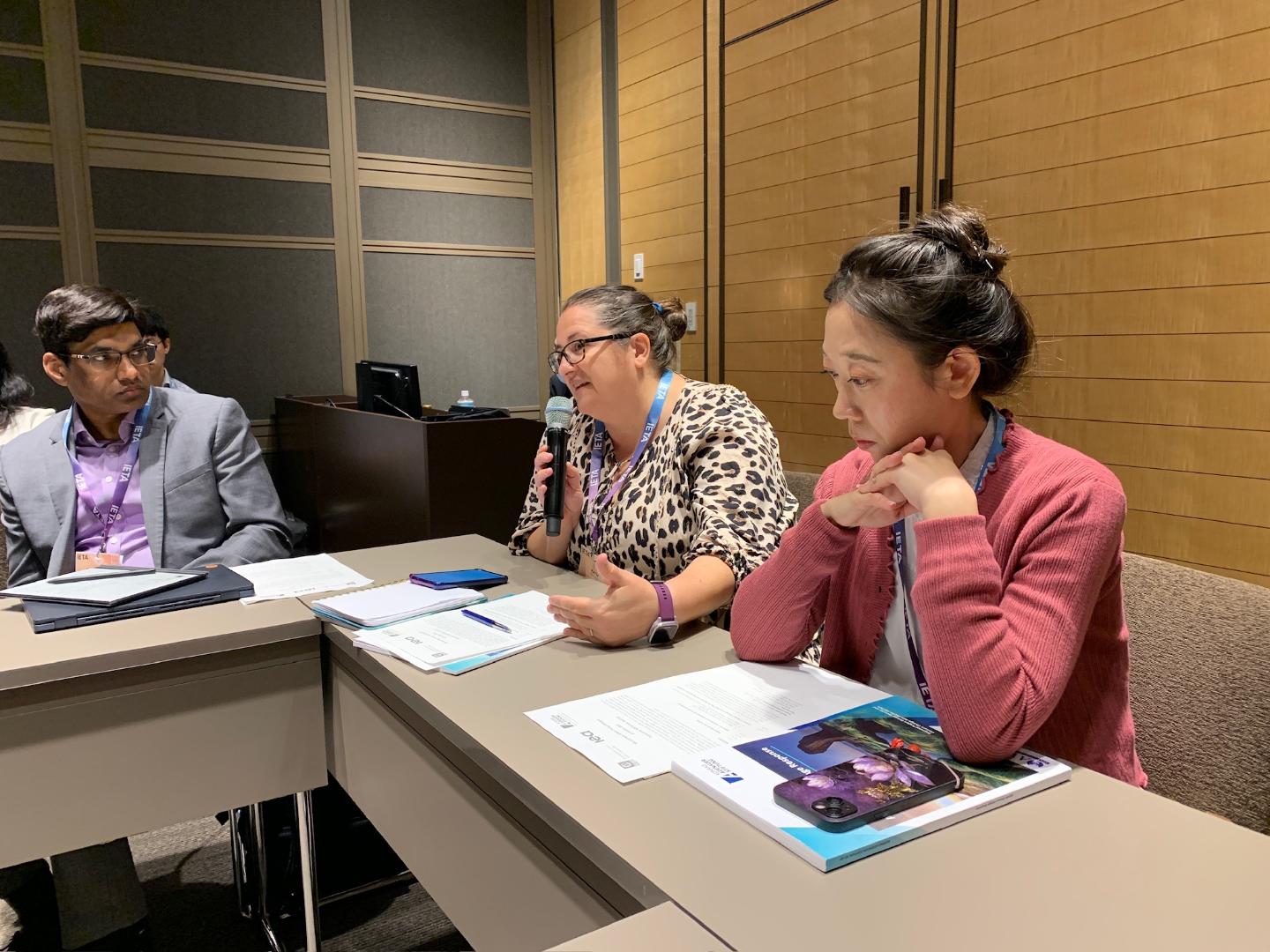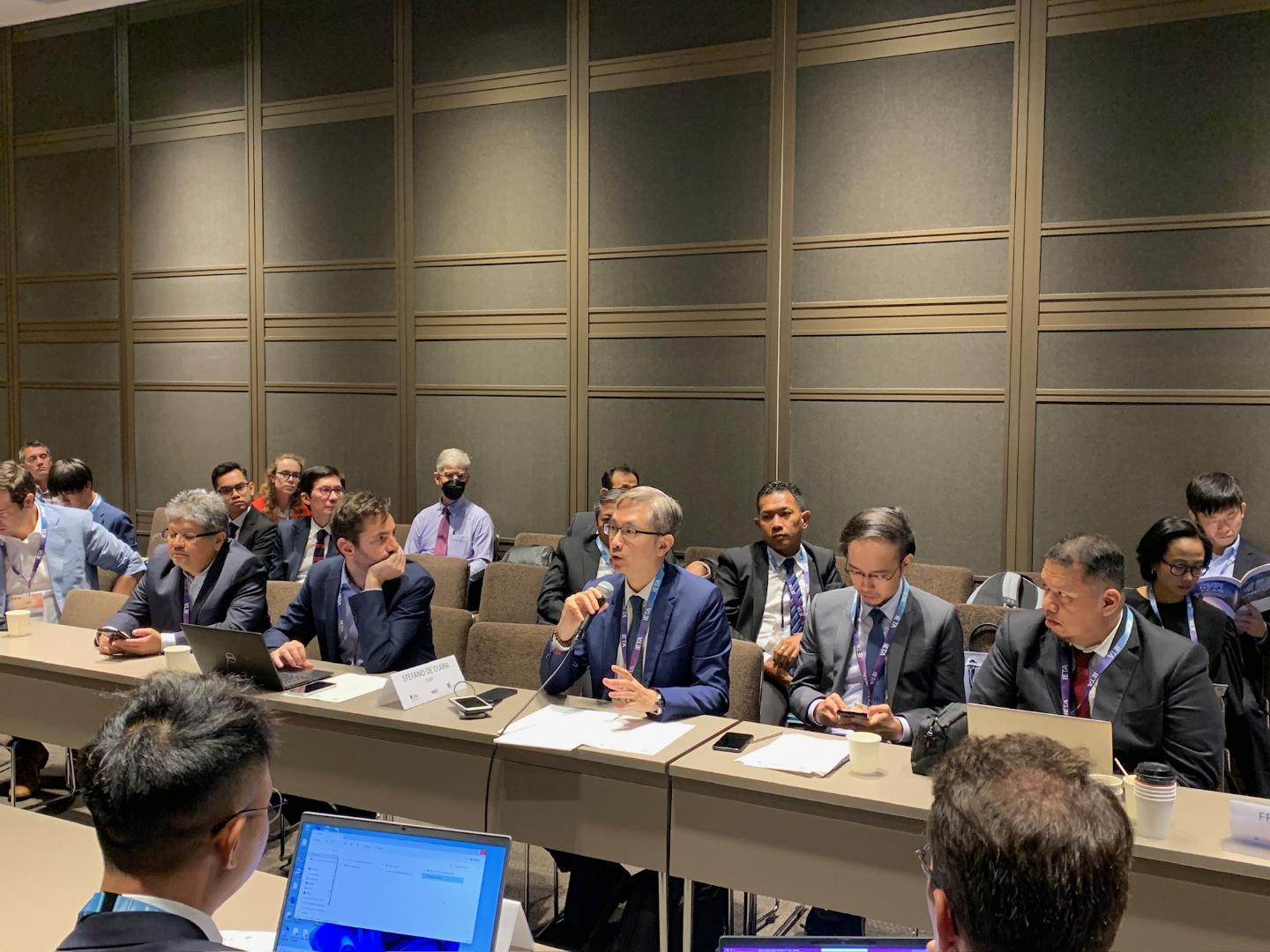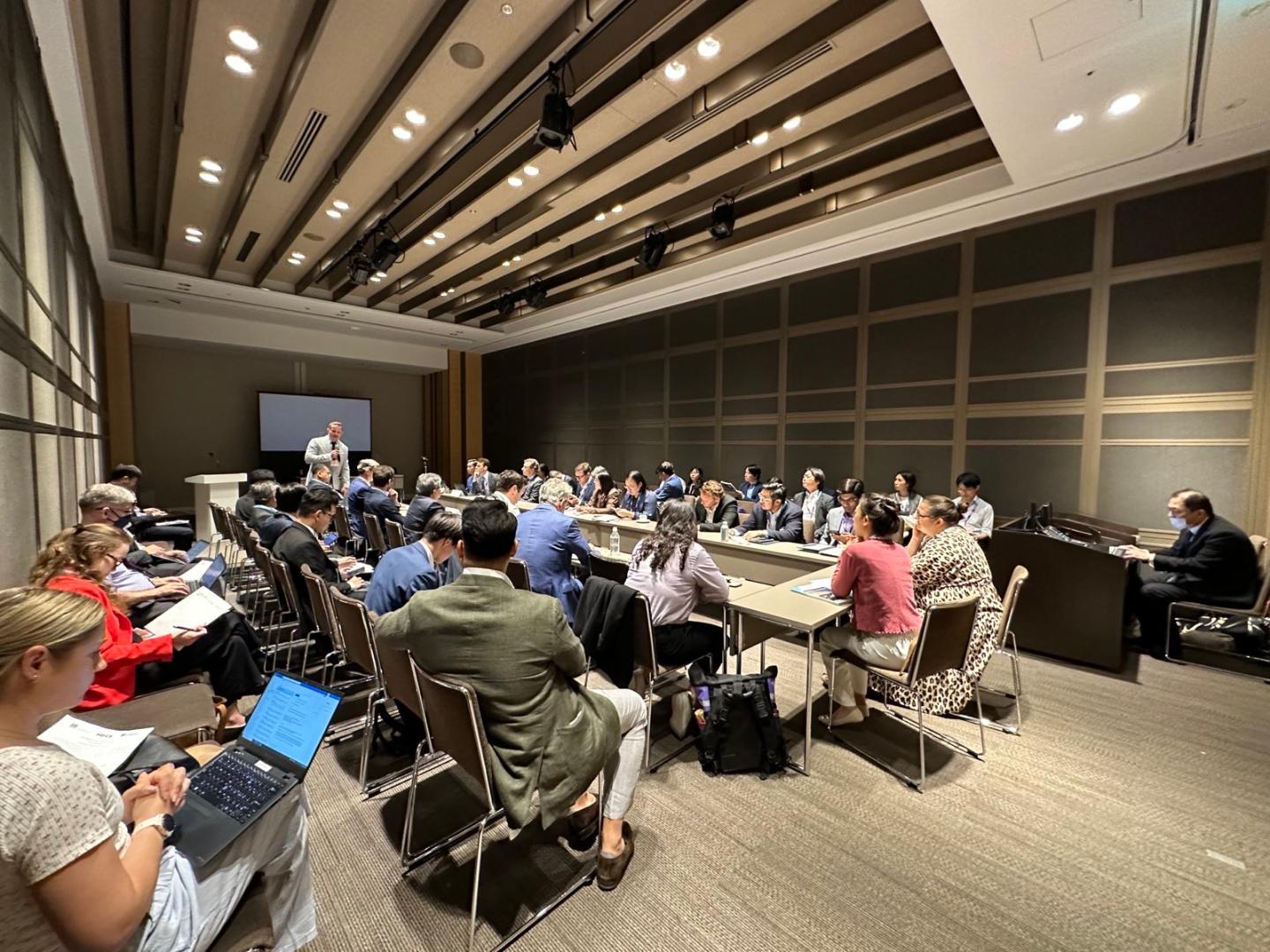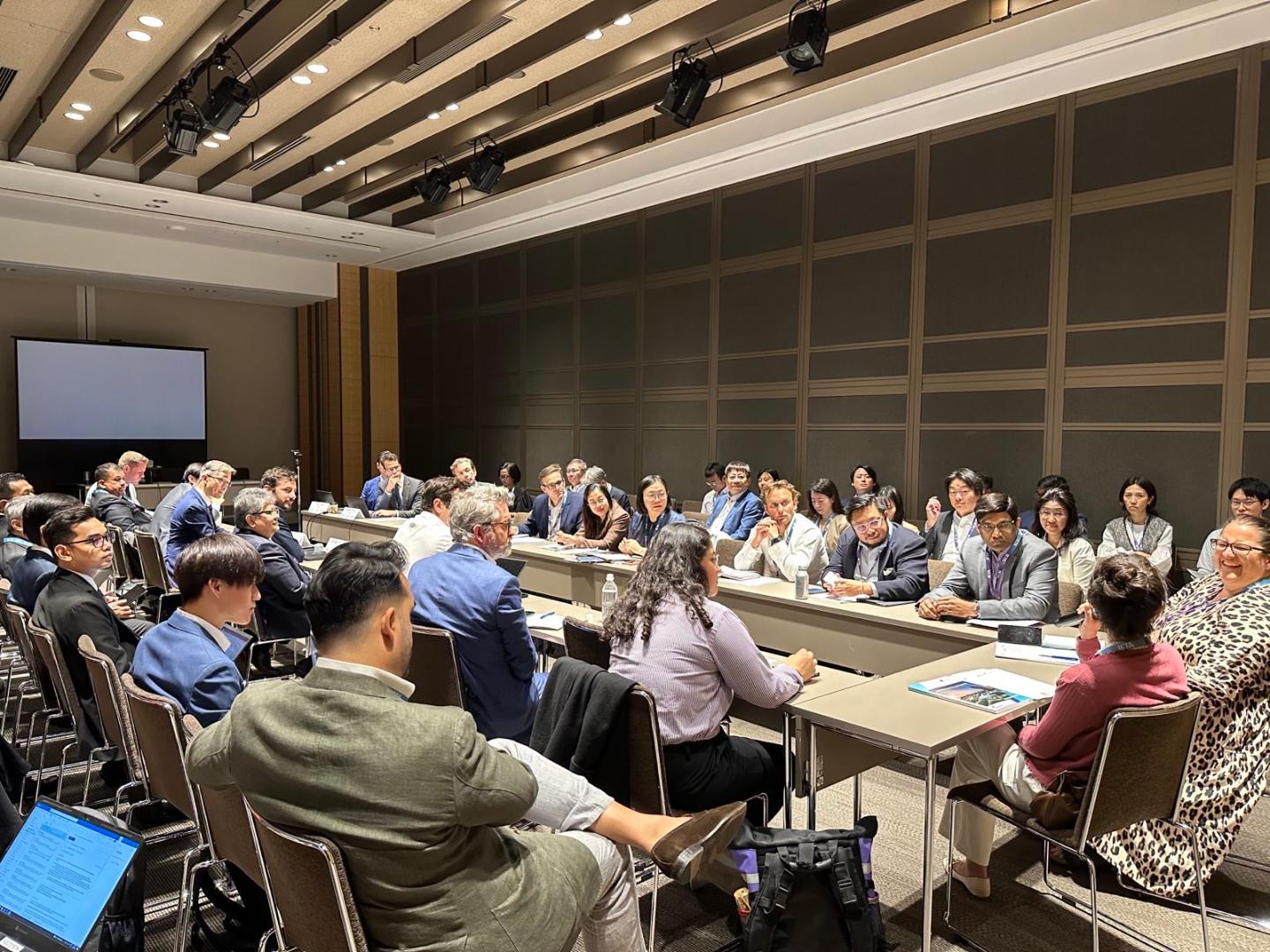Event reports
As an effective policy instrument for leveraging market forces to incentivise cost-effective emission reductions across sectors, carbon pricing is increasingly being adopted or considered by jurisdictions all over the world. The Asia-Pacific region is no exception. Recent developments in the international carbon pricing landscape include the European Union’s Carbon Border Adjustment Mechanism (CBAM) and more jurisdictions implementing and extending carbon pricing instruments of various kinds.
On 24 October 2023, KAS RECAP, International Energy Agency (IEA) and the International Carbon Action Partnership (ICAP) hosted a Carbon Pricing Dialogue on the sidelines of the annual Asia Climate Summit in Tokyo, Japan. This workshop brought together regional and international experts to share experiences and discuss carbon pricing developments in the Asia-Pacific region, analysing implications, opportunities and challenges for CBAM and for using carbon pricing as a tool to decarbonise all critical sectors, in particular industry.
The first session shed light on the linkage between the CBAM and carbon pricing. Most discussants acknowledged the role of the CBAM as an instrument to avoid carbon leakage, facilitating the decarbonisation efforts of specific industries outside the European Union. The impacts of CBAM vary by country in the Asia-Pacific. Developing countries, where consumers and producers that do not have progressive climate policies, are likely to be most adversely affected by the measure. It is a fair conclusion to state that most participants acknowledged CBAM as a potential toll for reducing carbon emissions, but most were highly critical of its implementation, its protectionist character and coercive nature. There were calls among countries that the EU should enhance its communication before and during the implementation of such consequential policy.
The second session explored the interrelations between different policy instruments, industrial decarbonisation and carbon pricing. Each economy is developing its own carbon pricing tools and mechanisms, shaped by different domestic consideration, and moves at different speed. In particular, the China and Indonesia cases were discussed in detail to examine the opportunities, challenges as well as solutions when designing, implementing, and reforming the relevant policies. In addition to the discussion about state driven carbon markets, experts analysed the current status of the voluntary carbon markets, highlighting the need for a quality carbon credit standard for Asia.
The three-day Asia Climate Summit that followed our workshop covered a wide range of climate issues, in particular climate finance and carbon pricing. Key stakeholders in the region were invited to speak in the conference. Mobilising capital from the private sector remains one of the main challenges to decarbonise the economic sectors and support the energy transitions. Further sessions revealed the interplay between carbon market action, cooperation, and policy innovation. Various national carbon markets in Asia and Article 6 cooperation across the region through 2030 were under intense discussions with the hope to draw lessons from each other.
Topics
Shaping Europe – Scenarios for the European Union in 2030
Transnistria without gas and Chişinău in crisis mode. A difficult winter in the Republic of Moldova
Policy Atlas ‘Renting, Buying, Living’
South Asia’s (Almost) Forgotten Climate Crisis and Europe’s Responsibility
Wind power as a key to Vietnam's sustainable future?



